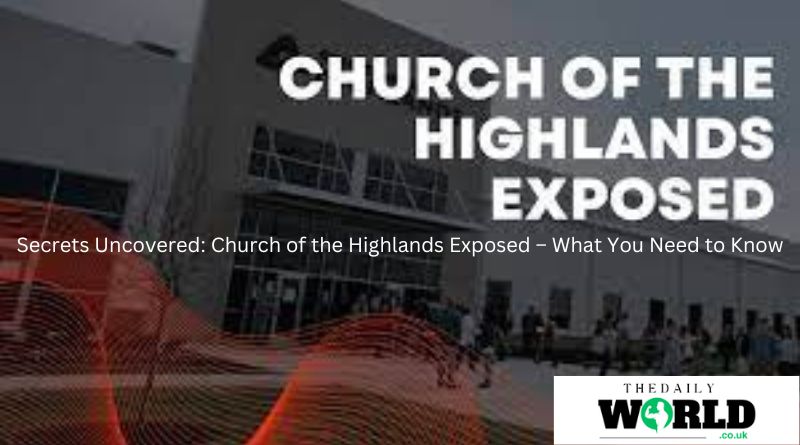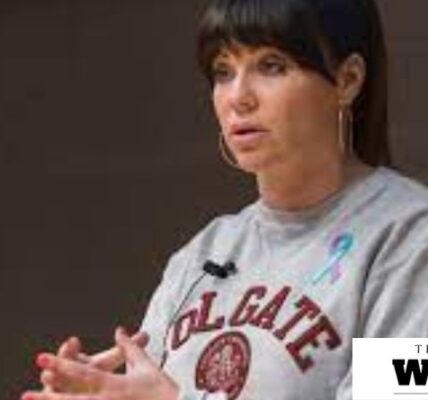The Church of the Highlands, a prominent megachurch based in Alabama, has grown significantly since its inception in 2001. With thousands of members and a vast network of campuses, it has been a beacon of faith for many. However, like any large organization, it is not without its controversies. This article delves into the various aspects of the Church of the Highlands, shedding light on the issues and concerns that have emerged over the years.
The Rise of the Church of the Highlands
The Church of the Highlands was founded by Pastor Chris Hodges in Birmingham, Alabama. What started as a small congregation quickly expanded, and today, it is one of the largest churches in the United States. The church’s growth can be attributed to its dynamic approach to worship, strong community engagement, and the charismatic leadership of Pastor Hodges.
The church’s success is also linked to its strategic use of technology and modern communication methods. Live streaming services, social media engagement, and a polished online presence have helped the Church of the Highlands reach a global audience. Additionally, its small group ministry, known as “Highlands Groups,” has been pivotal in fostering a sense of community among its members.
Controversies Surrounding Leadership
Despite its growth and popularity, the Church of the Highlands has not been immune to controversy. One of the most significant issues has been the scrutiny of its leadership, particularly Pastor Chris Hodges. Critics have raised concerns about his political affiliations and social media activity. In 2020, Hodges faced backlash for liking controversial social media posts, leading to public outcry and calls for accountability.
The church responded by issuing statements and apologies, but the incident highlighted broader concerns about the influence of personal beliefs on leadership decisions. This controversy also sparked a conversation about the role of religious leaders in political discourse and the impact of their actions on their congregations.
Financial Transparency and Accountability
Another area of concern has been the financial practices of the Church of the Highlands. As a megachurch with substantial revenue, questions have been raised about how funds are managed and allocated. Critics argue that there is a lack of transparency in the church’s financial dealings, leading to suspicions of mismanagement and misuse of funds.
In response, the church has made efforts to increase transparency, such as publishing financial reports and conducting external audits. However, skeptics argue that these measures are not enough to ensure full accountability. The debate over financial transparency continues to be a point of contention, with some members calling for more rigorous oversight and others trusting the church’s leadership to manage resources effectively.
The Impact of Expansion
The rapid expansion of the Church of the Highlands has also led to concerns about its impact on local communities and smaller churches. As the church opens new campuses across Alabama and beyond, some argue that it is overshadowing smaller congregations and drawing away their members. This phenomenon, often referred to as “sheep stealing,” has been a topic of debate among religious leaders.
Proponents of the Church of the Highlands argue that its growth is a testament to its effective ministry and outreach efforts. They believe that the church’s ability to attract large numbers of people is a positive development for the faith community as a whole. On the other hand, critics argue that the church’s expansion comes at the expense of smaller, local churches that struggle to compete with its resources and influence.
Social and Cultural Influence
The Church of the Highlands has also been a significant cultural force, influencing social norms and values within its community. Its teachings on issues such as marriage, sexuality, and family life have shaped the beliefs and behaviors of its members. However, this influence has not been without controversy.
The church’s stance on LGBTQ+ issues, for example, has been a point of contention. Critics argue that the church’s traditional views on marriage and sexuality are exclusionary and harmful to LGBTQ+ individuals. Supporters, however, maintain that the church’s teachings are rooted in biblical principles and should be respected as such. This debate highlights the broader tension between religious beliefs and evolving social norms.
Community Engagement and Outreach
One of the positive aspects of the Church of the Highlands is its commitment to community engagement and outreach. The church is involved in numerous charitable activities, including food drives, disaster relief efforts, and support for local schools. Its “Dream Centers” provide a range of services to underserved communities, including healthcare, job training, and housing assistance.
These efforts have garnered praise and have had a tangible impact on the lives of many people. However, some critics argue that the church’s outreach initiatives are primarily aimed at expanding its influence and attracting new members. They claim that these activities, while beneficial, serve as a means to an end rather than an end in themselves.
Internal Culture and Practices
The internal culture of the Church of the Highlands has also come under scrutiny. Former members have spoken out about their experiences, describing a high-pressure environment with strict expectations for behavior and involvement. Some have likened the church’s culture to that of a corporation, with an emphasis on growth and performance.
These accounts have raised questions about the impact of such an environment on the mental and emotional well-being of members. Critics argue that the church’s focus on growth and success can lead to burnout and disillusionment. Supporters, however, contend that the church provides a supportive community and opportunities for personal and spiritual growth.
Future Outlook
Looking ahead, the Church of the Highlands faces the challenge of navigating its controversies while continuing to grow and evolve. The issues of leadership accountability, financial transparency, and community impact will likely remain central to the church’s future. How it addresses these challenges will determine its ability to maintain trust and credibility among its members and the broader public.
The church’s response to social and cultural changes will also be crucial. As society continues to evolve, the Church of the Highlands will need to find a balance between staying true to its principles and adapting to new norms. This balance will be key to its ongoing relevance and influence.
Conclusion
The Church of the Highlands is a complex and multifaceted institution. Its rapid growth and success have made it a significant player in the religious landscape, but it is not without its challenges. Controversies surrounding leadership, financial practices, and social influence have raised important questions about its operations and impact.
Ultimately, the future of the Church of the Highlands will depend on its ability to address these issues transparently and effectively. By doing so, it can continue to be a source of inspiration and support for its members while contributing positively to the broader community. As the church moves forward, the lessons learned from its past will be crucial in shaping its path ahead.
Read also: check













